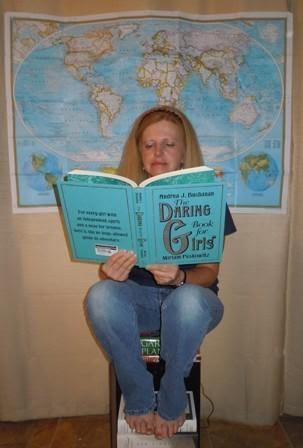Cheryl Hughes: Who the Heck is Cooter Brown
As you might remember, my husband Garey is from Alabama. Being from the deep south means, if you are in his presence for any length of time, you will be subjected to bits of southern wisdom that make a lot of sense and southern expressions that make little or no sense at all.
Recently, Garey gave one of our guys at work a bit of that southern wisdom, free of charge. The co-op guys are still teenagers, and as such, they are always trying to impress their friends, who are also teens, with what their trucks will do. One evening, in one such episode, one of our guys shredded his truck’s transmission. The next morning, Garey told him, “You know, all you gotta prove is you ain’t walkin.” That made a lot of sense.
One of the southern expressions Garey uses has always made little sense to me for years. When he talks about someone who is completely inebriated, he says “drunk as Cooter Brown.” Earlier in the week, I saw it again in a Southern Living column.
“Who the heck is Cooter Brown?” I asked Garey.
“I’m not sure,” he said, “but everybody in Alabama seems to know him.”
Curiosity got the best of me, so I decided to research the infamous drunkard.
According to that source of all knowledge on such matters—Wikipedia—Cooter Brown is a name that symbolizes drunkenness, primarily in the south. Cooter was a real person who lived on the line that divided the north and south during the Civil War. He could have been drafted by either side, but since he had friends and relatives on both sides of the line, he decided, in good conscience, he could fight for neither. He devised a plan to stay drunk throughout the conflict in order to be declared unfit for military service. Evidently the plan worked, because there is no record of military service in his background.
There is an alternate “Cooter Brown” legend involving a biracial man—half Cherokee, half African American—who lived in Louisiana. The time frame is still the Civil War, but the reason for Cooter’s unwillingness to fight is less altruistic. Cooter was pretty much a hermit, living in a shack on the bayou. He distrusted most people, and his reason for not wanting to take sides involved his quandary over which side might come out the winner. He didn’t want to come out on the wrong side of the conflict, so he devised the same plan of drunkenness in order to avoid military service. He dressed as an Indian in order to insure he was seen as a free man, not an African American slave. When soldiers from either side showed up, he was equally hospitable, offering the enlisted men free drinks. His persona as the crazy drunken Indian became part of the local lore, and when his shack caught fire and burned to the ground, it was assumed Cooter had been inside. No trace of human remains was found, but the locals surmised that Cooter was so saturated with alcohol that his body was completely burned up by the fire.
The Civil War ended in 1865, one hundred fifty-four years ago, and Cooter’s name is still alive and well, albeit a few have taken creative license with the spelling. There is a Cooter Brown’s Tavern and Oyster Bar in New Orleans and a Cootie Brown’s restaurant in Johnson City, Tennessee. Even the entertainment business has cashed in on the name. Kuda Brown is a rapper from Virginia, Cuda Brown has a digital album available for download online—Bath Times for Bartholomew Bear—and there is a band in Southern California that keeps the original spelling of Cooter Brown. As somebody was bound to do, Jekyll Brewing Company, in Georgia, cashed in on the name with their Cooter Brown Ale.
After reading about Cooter Brown, the “Drunker than Cooter Brown” expression makes a lot more sense. Now, if someone could just explain to me who Betsy is. You know, like in the phrase, “Heavens to Betsy!”



























